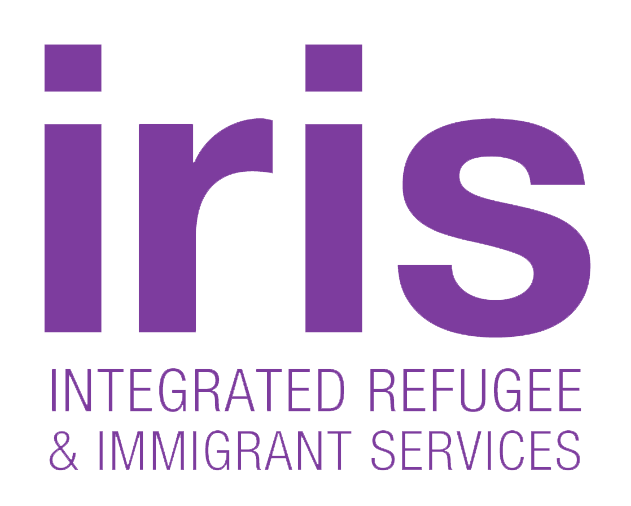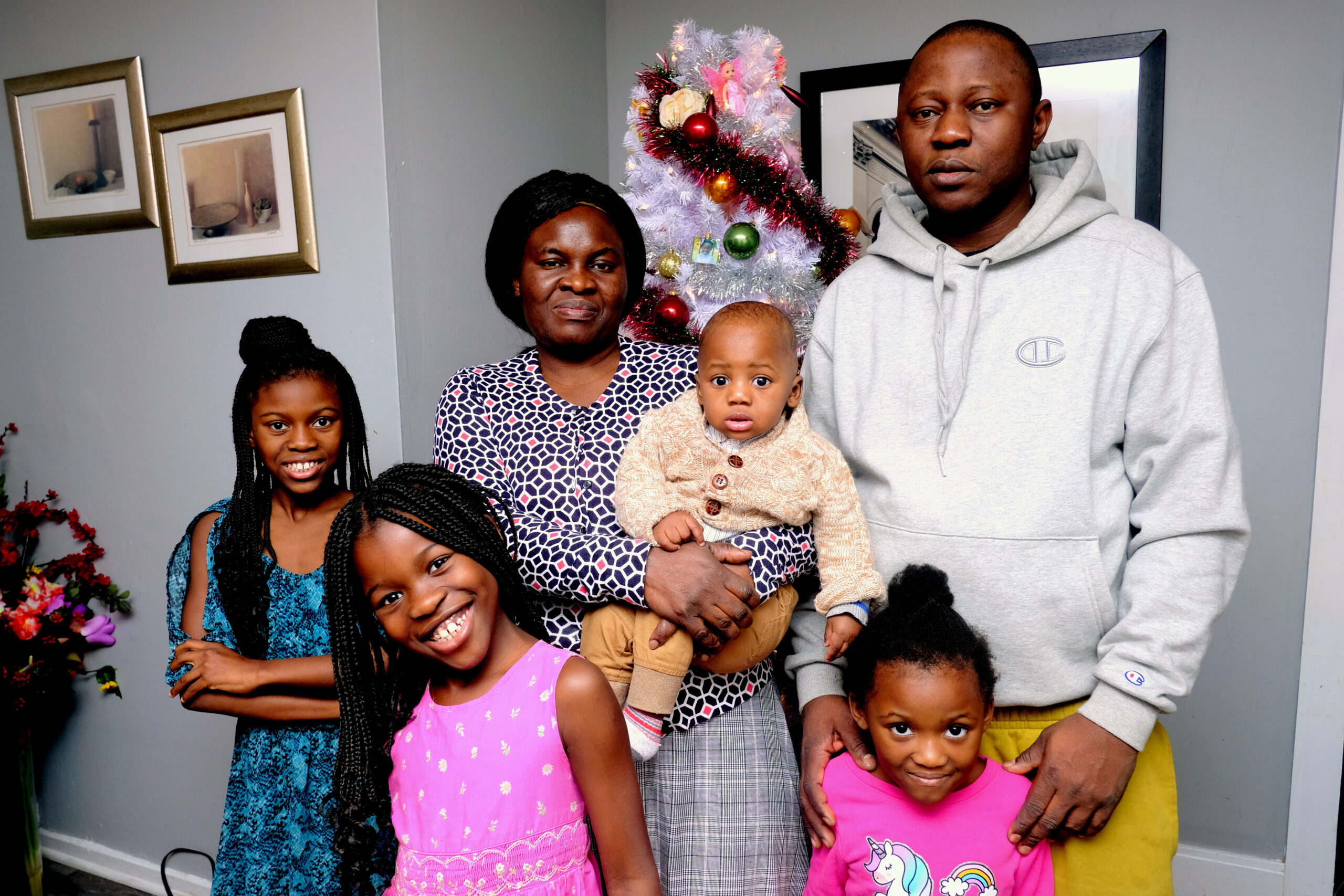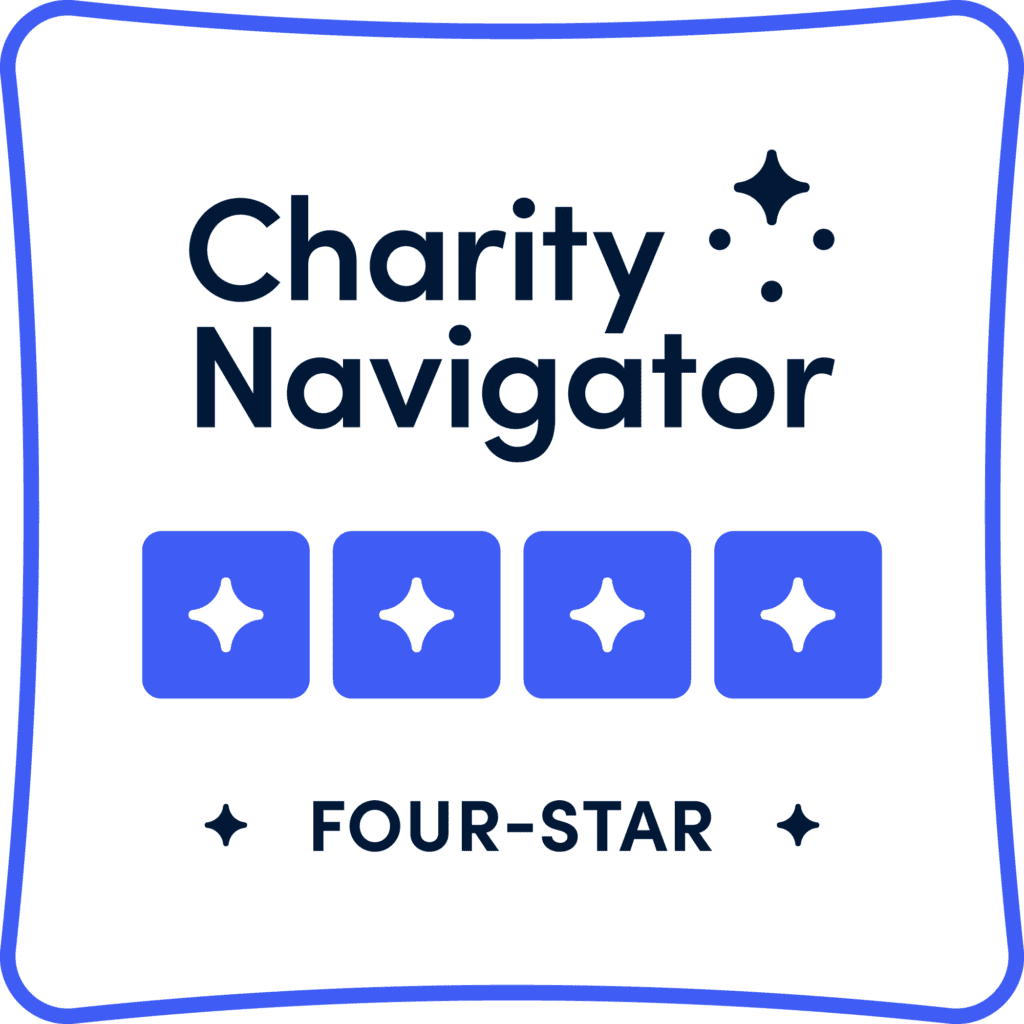By John Curtis
Almost three years ago, Mario and Ruth and their three children arrived In New Haven after an odyssey that had begun in 2016 when religious persecution forced them from Angola.
They spent two and a half years in a favela in Rio de Janeiro, where Mario resisted drug gangs’ efforts to recruit him. After several attacks and the murder of a friend, the family decided to leave. With just $500, they began a journey to the United States that took them by bus across Brazil and through Peru and Ecuador to Colombia. There they joined other refugees on a harrowing two-week march through the Darien Gap to Panama. In the jungle they lost their money and passports to bandits armed with guns and machetes, were separated from two of their daughters, forded rivers that rose to their necks, and saw fellow travelers washed away in swollen streams.
“If your friend falls dead, there’s nothing you can do for him, you have to keep walking,” Mario said a few days after their arrival in New Haven. “If you gave me $10,000 to do that again, I wouldn’t do it.”
They found their daughters, who had traveled ahead when their group split up, at a camp in Panama. After a month they continued traveling north. People along the way provided food and Mario cleaned windshields, begged for money, and did whatever he could to keep going. In December of 2019, after more than seven months of travel, they reached Reynosa on the border between Mexico and the United States. On January 20, they crossed into McAllen, Texas, and found shelter with Catholic Charities. When they arrived in New Haven in February after a 53-hour bus trip, there to greet them were IRIS staff and members of the Jewish Community Alliance for Refugee Resettlement. They were the fifth family resettled with the help of the partnership which includes the Jewish Federation of Greater New Haven and six local synagogues.
Within a few days the family was settled in an apartment in the Hill neighborhood. Because they entered the country on temporary parole as asylum seekers, they are ineligible for such benefits as health care and can’t work without authorization. When permission to work came through from the U.S. government, Mario, who had worked as a chef in Angola and Brazil, found a job making bread at a restaurant. Ruth, who’d worked in supermarkets in Angola and Brazil, found a job in a market in New Haven, but is now home with their three girls and their eight-month-old son. The girls, who are 9, 8, and 4, are in New Haven public schools. A year ago the family moved to a new apartment in Newhallville, and Mario now has a full-time job in a shipping facility in North Haven.
While their life is safer and more stable than in previous years, their future remains uncertain. As Seventh Day Adventists, they were persecuted in Angola. Mario’s father was killed because of his religion. Unlike refugees, who enter the country with their residency status settled, asylum seekers may stay while their application is processed. The family’s application is still pending.
They were one of two asylum-seeking families on the bus trip from Texas in February 2020. The other family, from the Democratic Republic of Congo, was resettled by another co sponsor, the First Congregational Church in Madison. Although IRIS has provided some assistance to asylum seekers in the past, this was the first time IRIS and its co-sponsors had taken on resettling asylum-seeking families.
“Catholic Charities, which runs the shelter in McAllen, Texas, sent out an APB that they have African families that don’t seem to have anywhere to go,” said Chris George, director of IRIS. “We responded immediately that we will take five families.” Sustaining families without social and health benefits was challenging, but George felt that IRIS’s robust network of co-sponsor groups was up to the task. In the end, Catholic Charities sent just the two families to New Haven.
Many refugees have friends or relatives to take them in, but that has not been the case with many from Africa. “We have no family here, no one to help us,” Ruth said a few days after the family’s arrival in New Haven. “We had nowhere else to go.”
Jean Silk, coordinator of JCARR, said deciding whether to accept the family required a consensus among the member synagogues and the federation. “It was an unknown for IRIS as well as for JCARR. Each rabbi conferred with the president of their board. Everybody said yes,” Silk said. Ultimately, the decision rested on their faith. “Torah instructs us 36 times to care for the stranger—far more than it commands us to observe the Sabbath or any other law.” JCARR committed $10,000 plus resettlement services that included finding an apartment, helping register the children in school, providing food and transportation and orienting the family to life in New Haven.
JCARR began in 2016, during the Syrian refugee crisis, after Silk attended an IRIS information session to learn more about resettlement. “I knew every Jew in the room,” she said. “We all got together and said, this is huge, we have to do this.” Because each synagogue was too small to take on resettlement individually, they decided it had to be a group effort by member congregations and the Jewish Federation. Silk signed on as the group’s coordinator.
Their first family arrived in 2016 from the Democratic Republic of Congo. Their second family, from Syria, arrived on election night that year. Another family from Syria arrived early in 2017 during the Trump administration’s Muslim ban. “We knew they were in the sky, coming from Turkey, but we didn’t know whether they would be allowed to stay in America once they landed at JFK,” Silk said. The family was granted entry. The fourth family came from Iraq, followed by the family from Angola. Since then, JCARR has welcomed a family from Syria and a family from Afghanistan. JCARR is now preparing to welcome its eighth family, from Ukraine.
JCARR has followed a structure recommended by IRIS, which involves assigning specific duties to task forces. In addition to one or two leaders for each task force, partner synagogues provide one or two liaisons for a total of about 24 in JCARR’s leadership group. There are also volunteers who find apartments, furnish them, provide transportation, and help out on moving day. Of those volunteers, Silk said, “They’re sort of uncountable.”
Silk said JCARR members have also learned to handle unexpected challenges, like tracking down a lost family in New York’s Port Authority bus station. “I have to reach out to other people, and we just figure it out,” Silk said. “The learning is two ways—we learn as much from our families as they learn from us. We love talking with each other. Sharing information about what is Judaism, what is Islam is so rewarding. Working with other volunteers is one of the most fulfilling things I have ever done. People all care about the same thing and we work together to figure it out.”



